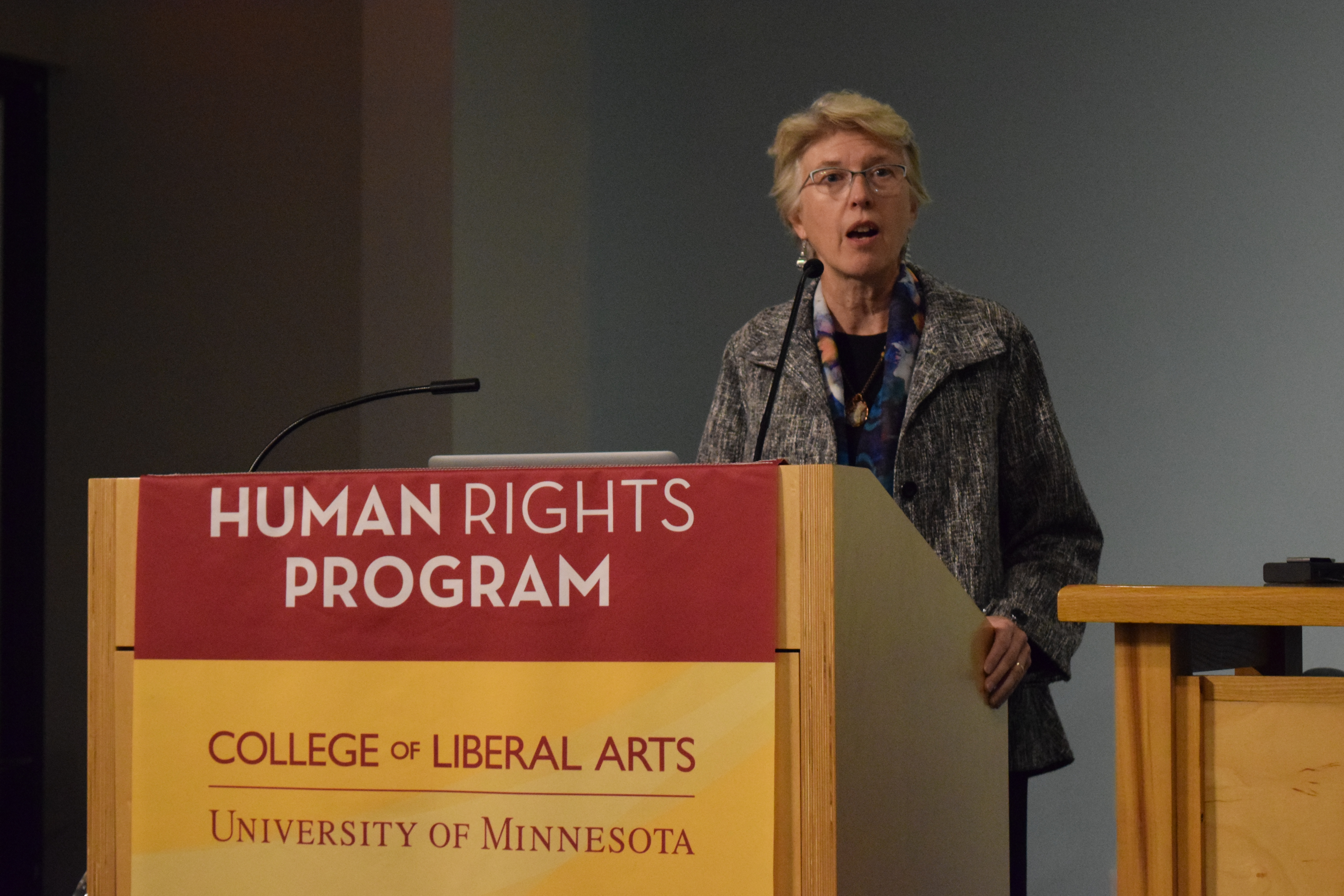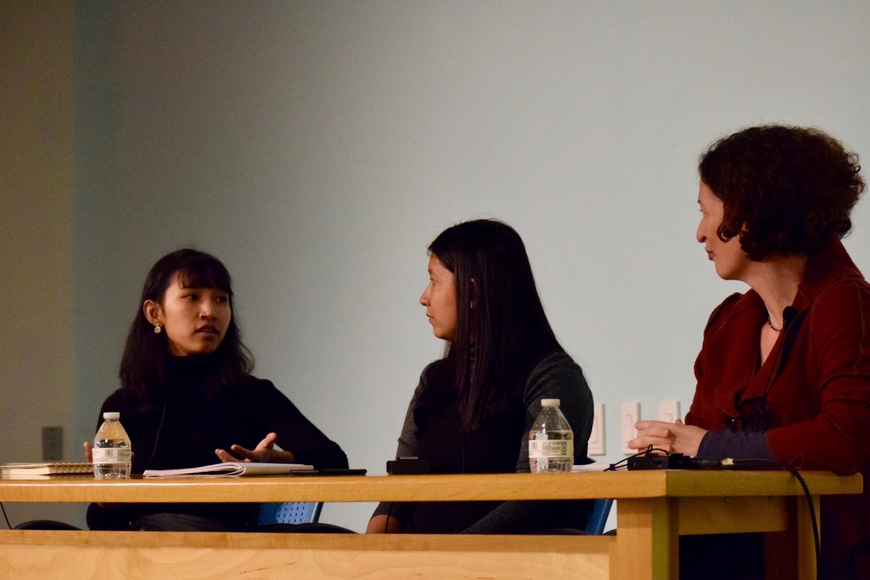This year's Scallen Lecture "Principled Voices" Series featured inspiring and critical reflections on how to Protect Press Freedom in Myanmar (Burma)
When in 2015 the Myanmar people elected human rights defender Aung San Suu Kyi’s party into power, the country appeared to be inching closer to democracy. The world watched and waited to see how this election might transform the once repressive nation, including how press freedom may expand. While there had been some initial improvement in the realization of free speech and free press, three expert panelists at this years Scallen Lecture “Principled Voices: Protecting the Press in Myanmar (Burma)” explained how the country’s space for press freedom is quickly shrinking.
Esther Htusan, a Pulitzer-Prize winning journalist from Myanmar and a 2019 Nieman Fellow for Journalism at Harvard University, discussed her experience working over the past few years. Htusan left Myanmar late in 2017 due to personal threats received because of her reporting on the Rohingya refugee crisis, controversial military operations in Rakhine State, and State Counsellor Aung San Suu Kyi’s handling of the crisis. Htusan began to see and experience a crack down on journalism and free speech starting in 2016, including being told to refrain from using the word “Rohingya” because members of the Rohingya community are not considered legal citizens of the country by the state. Journalists were ordered, instead, to refer to the Rohingya people as a “Bengali Terrorist group.”
Karin Deutsch Karlekar, Director of Free Expression at Risk Programs for PEN America, explained how oppression against journalists is playing out in both legal and social arenas in Myanmar. The government is detaining and prosecuting journalists for stepping beyond the government’s restrictive colonial-era laws related to speech. Karlekar cited the case of Reuters journalists Wa Lone and Kya Soe Oo, charged under the Official Secrets Act. Their prosecution and subsequent 7 year prison sentence is viewed largely as retribution for their investigation of military operations in Rakhine State.
Eaint Thiri Thu, a film producer, human rights researcher, and a Fulbright scholar at the University of Minnesota pursuing a Master of Human Rights degree discussed her work in understanding how the narratives of government and military elites in relation to the Rohingya crisis and other human rights abuses shape the domestic framing and language perpetuated via social media and other public mechanisms. Thu pointed out, “In Burma, the Rohingya are not considered humans…”, a theme perpetuated by government officials and much of the broader public, thus, why would human rights abuses matter?
In opening the “Principled Voices” panel, Barbara Frey, Director of the Human Rights Program, reflected on comments made earlier in the day by Michelle Bachelet, the United Nations High Commissioner for Human Rights, at the Human Rights Defenders World Summit in Paris. Bachelet spoke highly of the everyday human rights heroes who do not receive awards or grand ceremonies and may not know the significant role they play in forwarding human rights. As Bachelet noted, these individuals feel like “ordinary people...doing what needs to be done.”
While our panelists spoke courageously about the challenging environment journalists are attempting to operate within inside of Myanmar, the room that evening was also filled with much hope. Seeing the faces and hearing the words of these three human rights leaders was a reminder that even when the work is hard and there are attempts to silence principled voices, we must push on and continue “doing what needs to be done.”




